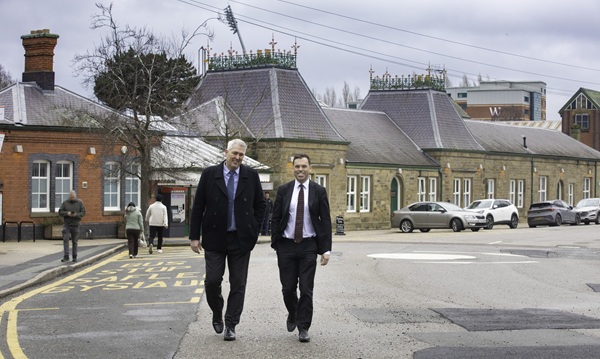
GUEST COLUMN:
Dr Edward Jones
Senior Lecturer in Economics
Bangor University

The UK Government Budget has left many businesses bracing themselves for difficult months ahead. Despite rhetoric about fostering economic growth, it is clear from the Office for Budget Responsibility (OBR) forecasts that the Government’s measures fall short.
Projected growth rates remain modest – just over 1% this year, peaking at 2% next year, and settling around 1.8% in 2026. These numbers aren’t the economic lifeline businesses had hoped for. Instead, they signal a long, hard road ahead for the economy, especially for firms already struggling to stay afloat in a challenging environment.
The Chancellor has long held that investment is the only sure path to growth, yet this Budget lacks a comprehensive plan to support business investment or to address mounting challenges. Many employers were expecting changes that might boost productivity or support workforce retention. Instead, they’ve been hit with steep cost increases. The reduction in the National Insurance contribution threshold, from £9,100 to £5,000, will leave businesses – especially SMEs – absorbing the burden, leading to further cost-cutting measures and a likely slowdown in hiring. This reduction also risks undermining morale, as many companies will struggle to offer salary increases in the months ahead.
What’s striking is not only what was included in this Budget, but also what was conspicuously absent. The Government avoided making changes to income tax on dividends – a missed opportunity for addressing tax equity and raising additional revenue. At Bangor University, we are actively exploring how such changes could benefit the Welsh economy, and it is surprising that the Chancellor passed on this option.
Even with modest budget allocations, there are other avenues that could encourage growth. Improvements to infrastructure – rail, road, and digital connectivity – are essential to lift productivity and reduce costs for businesses. In Wales, where productivity has consistently lagged behind other parts of the UK, such investment would provide a much-needed boost to regional competitiveness and resilience. Export support is another key area: opening Welsh businesses to new international markets could help to diversify revenue sources, adding stability in an uncertain global economy.
It’s disappointing, then, that the Budget lacks bold action in these areas. Instead of creating a comprehensive framework for economic growth, the Government seems focused on cost-cutting. While this may stabilise the budget in the short term, the strategy appears devoid of long-term vision. If businesses are to thrive, they need more than fiscal restraint – they need genuine support for sustainable growth.
As we turn our attention to the Welsh Government’s Draft Budget on December 10, there is hope that it will take a more focused approach. With the Welsh economy facing similar challenges to the rest of the UK, we need to prioritise investments that drive balanced and inclusive growth. Initiatives supporting transport infrastructure, digital connectivity, and sector-specific productivity enhancements should be top of the agenda. It is essential to consider the regional disparities across Wales, where productivity rates vary widely. Addressing these gaps will not only strengthen the local economy but also contribute to a more resilient and diverse business environment in Wales.
Ultimately, what businesses across the UK and in Wales need is a coherent growth strategy, not a piecemeal approach that leaves them facing a cliff edge come April. By looking to address both the immediate fiscal challenges and the long-term needs of the economy, the Welsh Government has an opportunity to set a more constructive path forward, offering businesses the stability and support they need to drive real economic growth.













